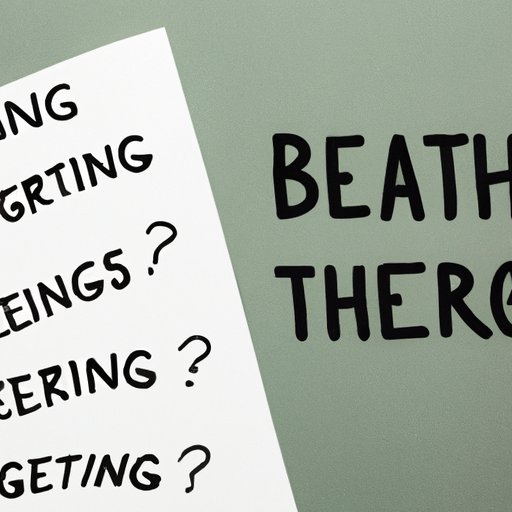Introduction
Detachment can be a challenging but necessary step towards emotional healing and growth. Whether someone is trying to move on from a past relationship or distance themselves from a toxic friend or family member, detachment is crucial in breaking the emotional ties that may be holding them back. In this article, we will explore practical ways to detach from someone while promoting personal growth and emotional self-care.
Understanding the Importance of Detachment
The first step towards detachment is understanding why it’s necessary for emotional well-being. When someone is emotionally attached to another person, it can lead to feelings of anxiety, dependence, and even obsession. Detachment is critical in breaking these patterns and allowing someone to focus on their own needs and desires.
Detachment is also necessary to move on from unhealthy relationships. Holding onto a past relationship that no longer serves someone’s best interests can lead to feelings of bitterness, regret, and stagnation. Letting go and embracing independence can help someone move forward with grace and enthusiasm.
Self-Evaluation
To detach from someone, it’s essential to evaluate one’s own attachment patterns and behaviors. Is there a pattern of co-dependence or obsession in the relationship? Are there patterns of behavior that keep the person tethered to the other person, even if it’s causing them harm? Self-evaluation can help someone identify these patterns and work towards emotional healing and growth.
Limit Contact
A practical step towards detachment is to limit contact with the person they are trying to detach from. This may mean blocking their phone number, taking a social media break, or even changing their physical address. While it may be difficult at first, limiting contact can help someone break the emotional ties that may be holding them back.
It’s important to acknowledge that limiting contact may not be an option in some circumstances, such as in co-parenting situations or work environments. During these times, it’s important to establish clear boundaries and keep interactions to a minimum.
Focus on Personal Growth
Detachment can be an opportunity for personal growth and self-discovery. Instead of focusing on the loss of the relationship, someone can use this newfound independence to pursue new hobbies and passions, rediscover themselves, and promote personal growth. This is an opportunity to focus on their own goals and desires, rather than trying to appease or align with someone else’s.
Setting Boundaries
Setting boundaries is critical in maintaining emotional wellness and promoting detachment. It’s important to communicate one’s needs and expectations clearly and to establish consequences for when these boundaries are crossed. Saying no can be a powerful tool in protecting one’s inner peace and promoting emotional self-care.
Seek Support
Seeking support from loved ones or a therapist can be vital for emotional healing during the detachment process. A trusted friend or family member can offer a listening ear and emotional support, while a therapist can help someone work through feelings of grief, anger, or betrayal that may arise during this time.
Conclusion
Detachment can be a challenging but necessary step towards emotional healing and personal growth. By understanding the importance of detachment, evaluating one’s own attachment patterns, and focusing on personal growth, someone can move forward with grace and enthusiasm. Setting boundaries and seeking support can also be crucial in maintaining emotional wellness during this time. Remember, detachment is not the end of a journey, but the beginning of a new chapter in life.
